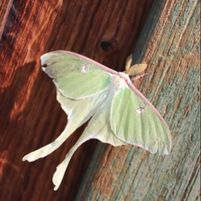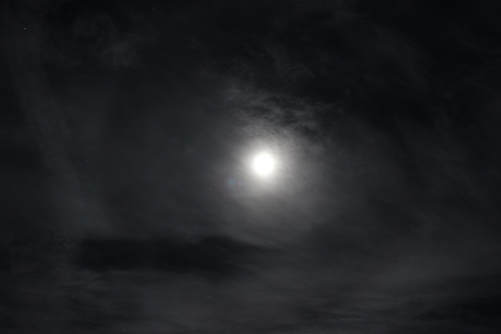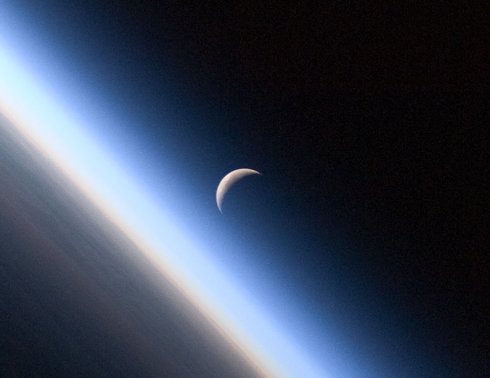|
2018 is a big year for the moon. January: two full moons - one on the first and one on the 31st. Plus a lunar eclipse on the morning of the 31st - which I was sad I couldn't see through our heavily tree-lined western horizon. March: another two full moons. Two blue moons in one year. This won't happen again till 2037. To see why, and to see a schedule of upcoming blue moons, go to earthsky.org/tonight/blue-moon-on-january-31-2018 And poor February gets no full moon, so I thought my posts for this month should be about the moon. I initially planned to look up a list of gods and myths associated with the moon and find a poem about each one. There are certainly enough poems about the moon. Earth's one natural satellite has inspired poets, monks, philosophers, scientists, insomniacs, shepherds, and moody teenagers for centuries. For one thing, she shows up best at night. A good time for mooning, or being moonstruck. And you can actually look at her without going blind, unlike her daytime brother or sister or husband - depending on which mythological system you follow. And that's just the problem. The number of gods and myths associated with the moon is dizzying. The Greeks alone have three lunar goddesses: Selene, Artemis, and Hecate. Selene, who became the Roman goddess Luna, actually carried the moon through the sky on a chariot, appearing at her brightest and best in the middle of the lunar month, eventually disappearing into the sea for a few days for a refreshing bath, to appear again as a shimmering new moon. Artemis (later the Roman Diana) was venerated as the goddess of the hunt, wild animals and protector of young girls. Hecate was the goddess of magic and her statues were placed at the entrance to homes as protection from ghosts. There are also less benevolent moon gods. The Maori refer to the moon as "man eater" and some sources say the Aztec goddess associated with the moon, Mictecacuitl, the chief death goddess, was known for hunting and consuming victims. Or was she? Or could she have simply been the guardian of the world of the dead and a necessary figure in the natural cycle of life and death? Anyhow, it all gets very confusing. So I've decided to do it the other way around. Find some interesting moon poems and see which myths or gods show up in them. The Feminine Moon
The moon is most often personified as a woman, her cyclical appearances mysteriously connected to our menstrual cycles. And her inconstancy a pejorative analogy for female character. While Percy Bysshe Shelley's "The Waning Moon" (www.poetryfoundation.org/poems/45114/the-waning-moon) may not be the best example of this - after all, his doddering old moon could just as easily be an old man - the poem has the charm (?) of being very gothic and very short. Though I don't think I've ever imagined the waning moon being "led by the insane/ And feeble wanderings of her fading brain." Most often I think of it as a bit lonely as it slips further and further behind the sun in its traverse along the zodiac. Alice Oswald's "Full-length Portrait of the Moon" is a more nuanced and ultimately sympathetic portrayal of the moon as woman. (www.poetryfoundation.org/poetrymagazine/poems/49192/full-length-portrait-of-the-moon) Hard to say which are my favourite lines. "...what she answers to/ is never loud enough to know." Or "Eaten away by outwardness,/ her eyes are empty." Or women "move through a dark room,/ peering round under/ the hoods of their names." Just for fun, see Oswald's "Full Moon" (www.poetryfoundation.org/poetrymagazine/poems/49193/full-moon-56d22b0c02d2e) in which she dreams she has become the full moon with her "face misted up from inside." Next time: The moon as guardian (and maybe even the Man in the Moon) and how the Earth tugs on the Moon's stoney heart.
0 Comments
|
AuthorI'm Elizabeth Pszczolko, a writer living in the woods outside Thunder Bay, Ontario. As a child, I used to keep scrapbooks of nature stuff - drawings, musings, poems. This is my grown up (I use the term loosely) version of those long lost works. For more on what inspires this blog, please see the About page. Archives
November 2023
|
Proudly powered by Weebly





 RSS Feed
RSS Feed